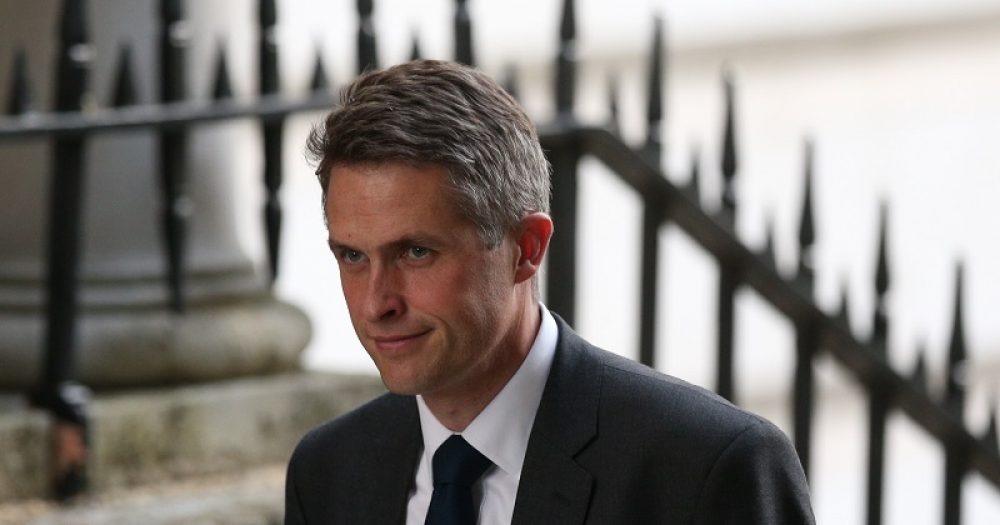Starting salaries for teachers will be bumped up to £30,000 by 2022, the government has confirmed today.
It marks a massive increase of up to £6,000 (25 per cent) over the next three years in a bid to make the profession more competitive in the graduate labour market amid flagging recruitment numbers.
However, funding to cover the rises will come from the school budget hike announced by the government last week.
The government has also announced today it will recommend bringing in “advisory pay progression points” for classroom teachers on the main and upper pay ranges.
New “ambassador schools” will also be named to “champion” flexible working.
They are the latest in a blitz of education announcements over the past week, including yesterday’s proposals to ditch the Ofsted ‘outstanding’ inspection exemption and the £7.1 billion funding rise as part of a three-year spending settlement, before a rumoured upcoming general election.
Education secretary Gavin Williamson said teachers should be in “no doubt that this government fully backs them in every stage of their career, starting with rewarding starting salaries”.
“I want the best talent to be drawn to the teaching profession and for schools to compete with biggest employers in the labour market and recruit the brightest and the best into teaching.”
Schools will be mindful this creates an increased cost pressure on their budgets that will erode some of the increases
The government has not released details of how much the pay rise will cost schools, but for new entrants alone it is expected to cost around £130 million each year (without on costs for the employer).
Under the plans, the government will incrementally increase the minimum salary on the main pay scale until it hits £30,000 by 2022.
This means all teachers will then be paid £30,000 by that date – meaning the true cost to schools will be much higher (nearly a quarter of teachers are currently paid under the £30k threshold).
The current starting salary is around £24,000 outside of London. The minimum salary in inner London is already nearly £30,000 – but the rise will be on top of London weighting, so teachers in the capital will also see a pay boost.
Jon Andrews, director at the Education Policy Institute think tank, said it was a “much-needed policy shift”, but added schools will be “mindful this creates an increased cost pressure on their budgets that will erode some of the increases” announced on Friday.
He said the pay announcement lacked the details required to “really understand the scale of that pressure and how it will be felt by schools”.
Further details will be set out in the government’s evidence to the STRB later this year.
But Schools Week understands this rise does not rule out future pay increases for other teachers in the coming years.
Paul Whiteman, general secretary of NAHT union, said: “We desperately need to make teachers’ pay competitive with other graduate career choices if we are going to plug the leaky pipeline of recruitment and retention.”
But he said teachers and leaders have seen their wages fall in real terms every year for the past decade, adding: “Crucially, all of these pay and support measures need to be fully funded by the government, so that the money announced for schools on Friday is not immediately swallowed up by today’s proposals. That would be wrong if it does.”
All of these pay and support measures need to be fully funded by the government
Williamson will also ask the STRB for recommendations over additional pay reform – including the introduction of pay progression points.
While these will be advisory, the government hopes the additional advice on pay progression pathways for teachers will help schools address recruitment challenges and reward good performance. Academies no longer have to follow national pay scales and automatic pay progression was ditched in 2012.
In a continued push to help schools boost their flexible working arrangements, the government will also announce “ambassador schools” to share good practice.
Williamson added: “These new Ambassador Schools will break down the barriers and show schools who are nervous about flexible working that not only can it be done, it can change their school for the better.”
It was announced last week schools will get nearly £1.5 billion extra per year to cover the rise in employer pension costs to 23.6 per cent.








What is really needed is teacher pay being taken out of electioneering hands. It’s impossible to plan for the long term if pay is a football for politicians to kick around. (Presumably politicians wouldn’t appreciate the constant and very deliberate fluctuations in their pay.)
Are all teachers to expect this raise in salary, e.g. if you currently earn £30k will your salary rise to £38k by 2020, if you currently earn £38k would yours go up to £44k?
This could get rather expensive.
As a CS graduate it took me years of work experience to reach 30k. 30k starting salary is crazy its above the national average wage !
It has to be the same for nurses then. Absoloute minimum.
I strongly agree that the nurses worth is as great as teachers therefore they should get the same
Dead right! I have thirty years’ experience as a nurse and have lived in my hands. My salary is £31K. I’m frankly appalled.
I’m unclear what will happen on the other pay scales. Anything but significant rises there would effectively be a cut. This sounds more like narrowing the pay scale. That will not help retention.
So does that mean that a teacher with 5+ years experience will be earning the same as an nqt? I’m not earning much more than that on ups1